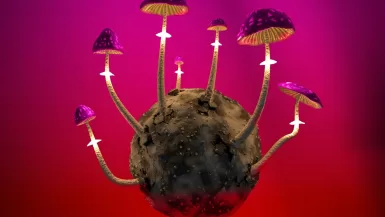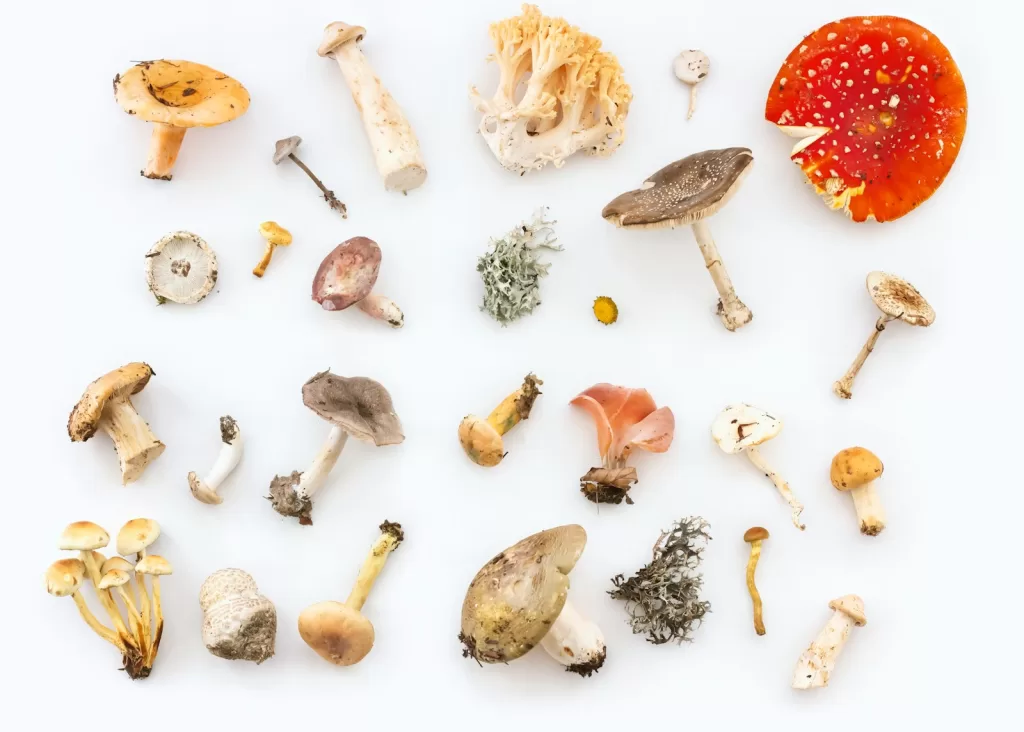
In recent years, the exploration of natural remedies for mental health concerns has led to increased interest in medicinal mushrooms as a potential alleviator of anxiety and depression. Anxiety disorders are the most common mental illness in many countries, affecting millions of adults globally. Depression is not far behind, being a leading cause of disability. Together, they create a substantial public health burden, and effective interventions are constantly sought after.
Mushrooms have been used in traditional medicine for centuries, and modern research is now investigating their potential mental health benefits. Medicinal mushrooms such as Lion’s Mane, Reishi, and Psilocybin-containing varieties are becoming notable for their possible roles in improving symptoms of anxiety and depression. Clinical studies and anecdotal evidence indicate a potential for these natural fungi to influence brain health positively. However, understanding their effects, appropriate dosages, and long-term impacts require further scientific inquiry.
- Key Takeaways
- Understanding Anxiety and Depression
- Role of Medicinal Mushrooms in Mental Health
- Scientific Research on Mushrooms and Mental Health
- Considerations for Usage and Future Research
- Frequently Asked Questions
- Which medicinal mushrooms are known to help with anxiety relief?
- How does Reishi mushroom affect mental health and mood stabilization?
- Can Lion’s Mane mushrooms assist in managing symptoms of depression?
- What evidence supports the use of Turkey Tail mushrooms for emotional wellness?
- Are there specific mushroom supplements recommended for stress reduction?
- What are the potential side effects of using mushrooms for mental health purposes?
Key Takeaways
- Medicinal mushrooms are being studied for their potential to alleviate symptoms of anxiety and depression.
- Lion’s Mane, Reishi, and Psilocybin are some mushrooms noted for their promising effects on mental health.
- Further scientific research is necessary to establish effective dosages and understand long-term benefits and risks.
Understanding Anxiety and Depression
Anxiety and depression are prevalent mental health disorders that impact brain function and quality of life. They are complex conditions with significant mental health benefits to be gained from understanding their mechanisms and effects.
Symptoms and Mental Health Impact
Anxiety disorders manifest through various symptoms, including persistent worry, increased heart rate, difficulty concentrating, and insomnia. The mental health impact of anxiety can be debilitating, leading to significant distress and interference with daily activities. Similarly, depression is characterized by prolonged sadness, loss of interest in previously enjoyed activities, fatigue, and changes in appetite. Both conditions can severely diminish an individual’s mental health and well-being, necessitating a comprehensive approach to treatment and management.
Neurotransmitters Involved: Serotonin and Dopamine
At the neurochemical level, neurotransmitters like serotonin and dopamine play a crucial role in regulating mood and emotional responses. Serotonin is often linked to feelings of well-being and happiness and is a common target for medications treating depression and anxiety. Dopamine, on the other hand, is associated with the brain’s reward system and motivation, with imbalances contributing to the symptoms of depression. Understanding the role of these neurotransmitters has been vital in developing treatments that aim to correct these imbalances and provide mental health benefits.
Role of Medicinal Mushrooms in Mental Health
Medicinal mushrooms have been gaining attention for their potential to impact mental health, particularly in the management of anxiety and depression. Specific species such as Reishi, Lion’s Mane, and Cordyceps bring unique compounds to the table that may offer mental health benefits.
Reishi Mushroom and Its Benefits
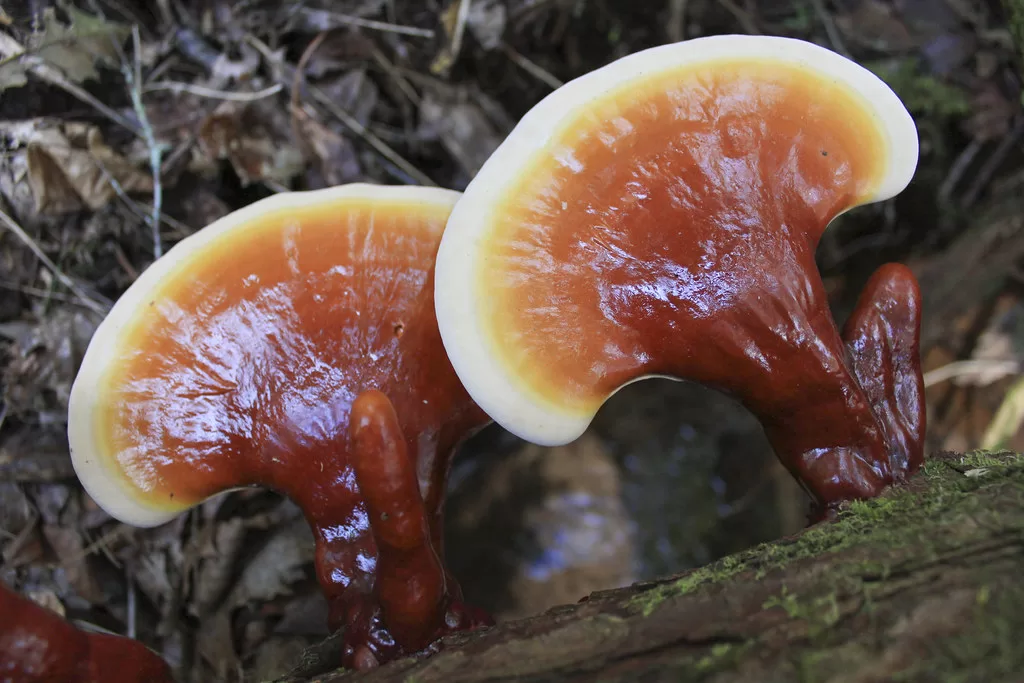
The Reishi mushroom, also known as Ganoderma lucidum, carries a history of use in traditional medicine. They are believed to contain adaptogenic properties that help the body manage stress. Reishi mushrooms have been associated with health benefits like boosting the immune system and possessing anti-inflammatory qualities. The correlation between inflammation and mental health suggests that the anti-inflammatory properties of Reishi could play a role in alleviating symptoms of anxiety and depression.
Lion’s Mane: Nerve Growth and Cognitive Function
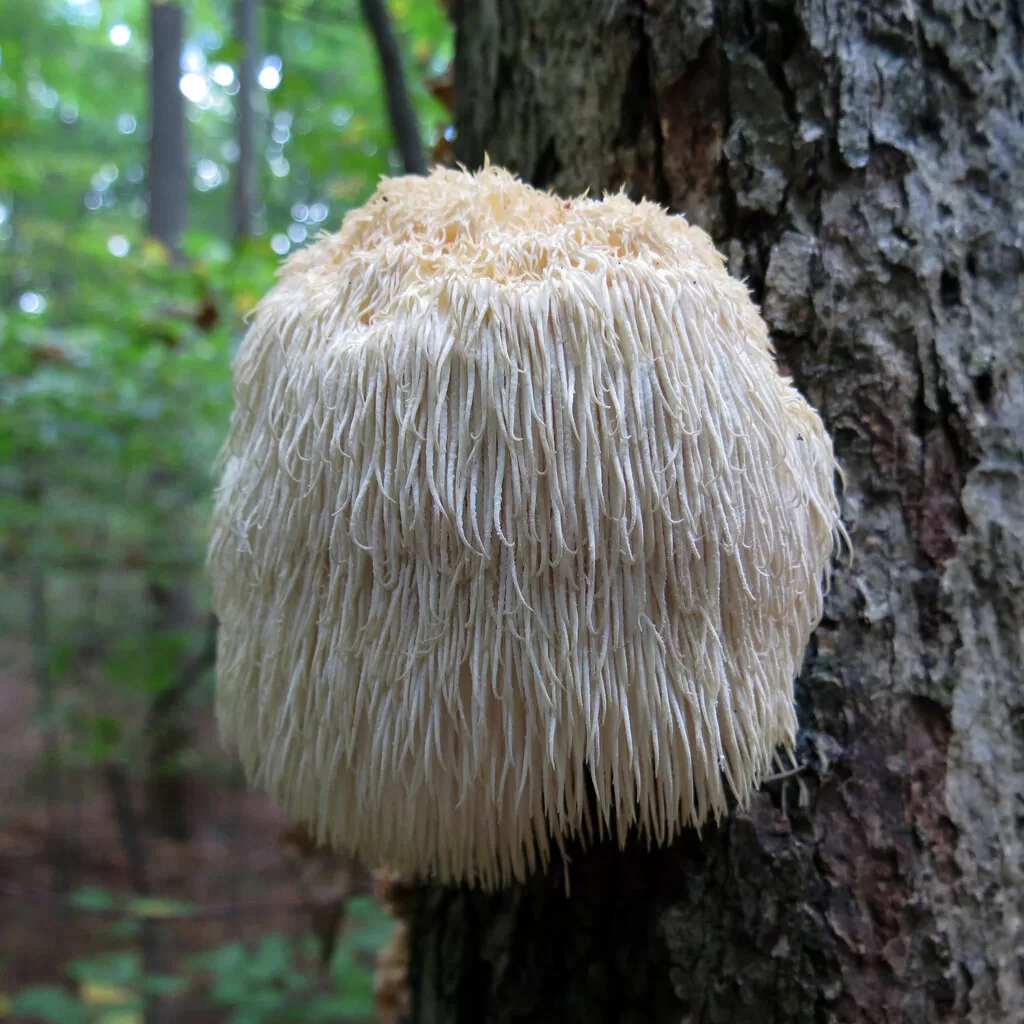
Lion’s Mane (Hericium erinaceus) is renowned for its ability to support nerve growth and cognitive function. Rich in antioxidants, Lion’s Mane mushrooms may encourage the production of the nerve growth factor (NGF), a protein that is crucial for the maintenance and regeneration of neurons. This process may have significant implications for mental health, potentially improving symptoms related to anxiety and depression by enhancing overall brain function.
Cordyceps: Energy and Stress Relief
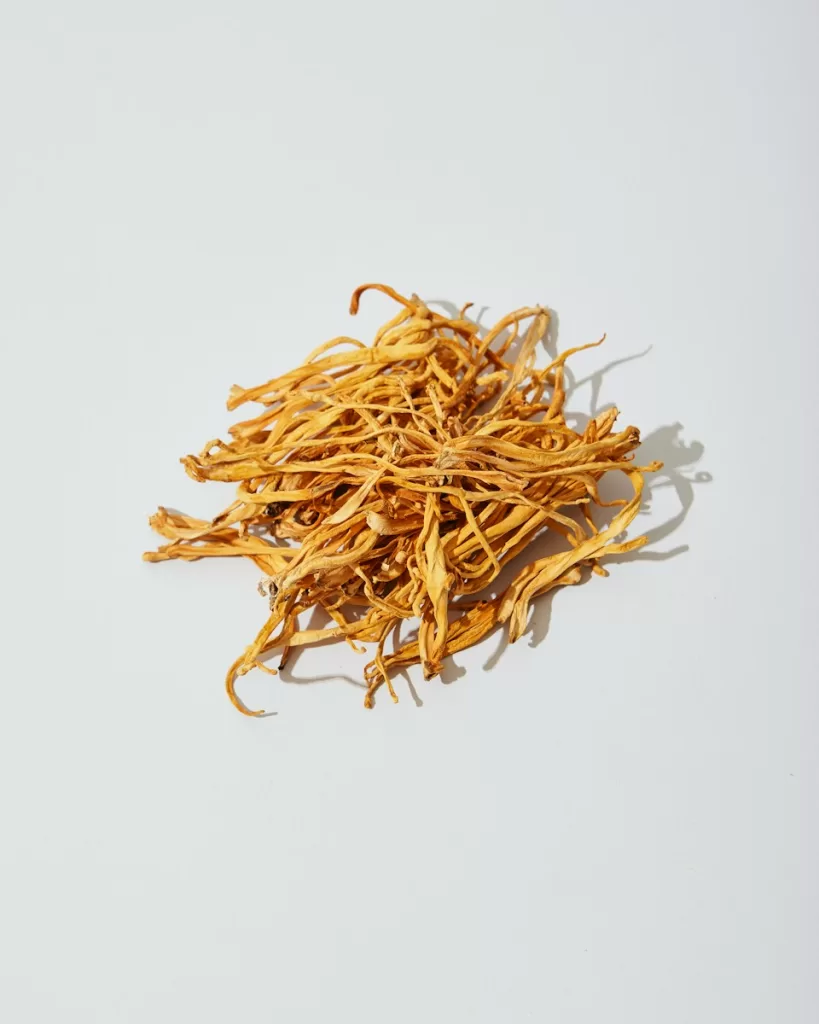
Cordyceps, which refers to a genus of parasitic fungi, includes species like Cordyceps militaris known for its energizing effects. These mushrooms may improve the body’s use of oxygen and boost energy levels, which can be beneficial for those experiencing the fatigue often associated with depression. Moreover, Cordyceps exhibit anti-inflammatory properties that may contribute to stress relief, helping the body to maintain equilibrium despite psychological or physical stressors.
1. Enhancing Wellness with Mushroom Gummies

In recent years, the use of mushrooms for mental health has gained significant attention. Among the various formats available, mushroom gummies stand out for their convenience and taste. These gummies often contain extracts from mushrooms known for their therapeutic benefits, like Reishi and Lion’s Mane, which are particularly noted for their potential in alleviating symptoms of anxiety and depression. To explore a variety of these beneficial gummies, consider checking out comprehensive guide on the best mushroom gummies. This guide provides insights into different products, helping you find the perfect fit for your wellness routine.
2. Mushroom Coffee: A Soothing Elixir for the Mind

For coffee enthusiasts looking to integrate the benefits of mushrooms into their daily routine, mushroom coffee emerges as an intriguing option. This unique blend combines the familiar, comforting taste of coffee with the added benefits of medicinal mushrooms. Studies suggest that certain mushrooms, like Chaga and Cordyceps, can help in managing stress and improving mood, making them a great choice for those dealing with anxiety and depression. The synergistic effect of caffeine and mushroom extracts can create a balanced energy boost without the jitters. Dive into the world of mushroom coffee and discover the best blends by reading this extensive review on the best mushroom coffees.
3. Movies and Mushrooms: An Escape from Reality

While mushrooms can be a part of your daily diet for mental wellness, they also have a place in entertainment and relaxation. Watching movies can be a therapeutic experience, especially when you’re looking to unwind and escape. Combining this with the mild, mood-enhancing effects of certain edible mushrooms can create a soothing, immersive experience. Whether it’s a visual masterpiece or a deep, introspective film, the right movie can complement the mood-lifting properties of mushrooms. For an intriguing list of movie suggestions that pair well with this experience, check out this list of the best movies to watch on mushrooms. This guide offers a selection that resonates with the profound, often introspective nature of mushrooms.
Scientific Research on Mushrooms and Mental Health
Recent studies underscore the potential of certain mushrooms in addressing mental health issues such as anxiety and depression. This section delves into the clinical evidence and psychoactive properties of such mushrooms, specifically focusing on psilocybin.
Clinical Trials and Studies on Efficacy
Scientific exploration into the efficacy of mushrooms for mental health has intensified, with numerous trials suggesting beneficial outcomes. For example, a study detailed on the National Center for Biotechnology Information (NCBI) website explores the impact of psychedelics on cognitive function. Clinical trials have observed that psilocybin, a compound found in psychedelic mushrooms, may significantly reduce depression and anxiety in patients. Specifically, Johns Hopkins researchers found that a single large dose of psilocybin provided long-term relief for individuals with cancer-related anxiety or depression, as reported by the Johns Hopkins Center for Psychedelic and Consciousness Research. These studies are pivotal, as they suggest a correlation between mushroom consumption and improvements in mental health.
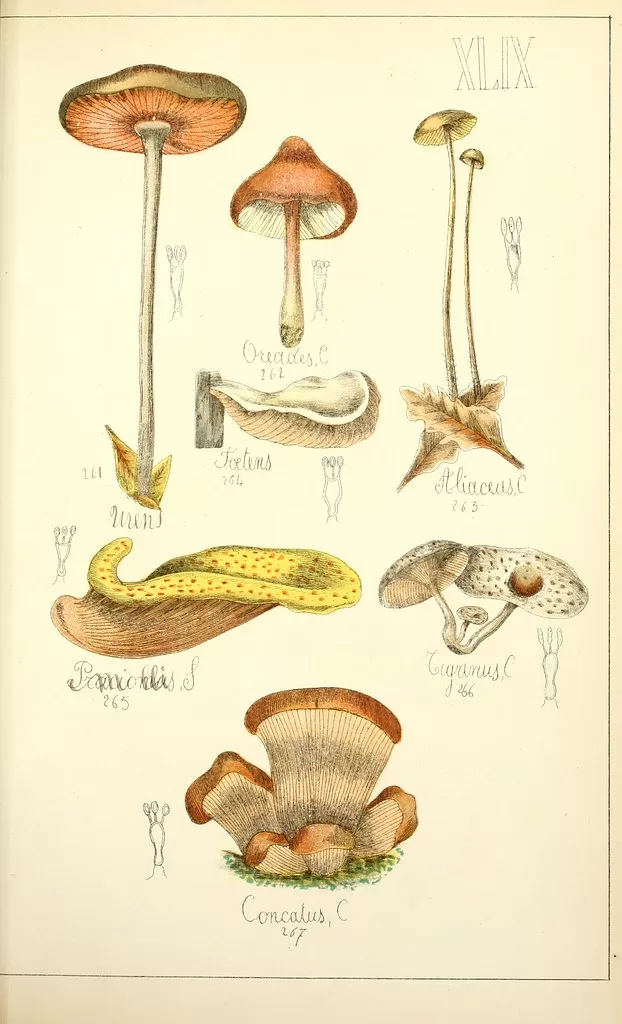
Psychoactive Properties: Psilocybin Mushrooms
Psilocybin mushrooms, commonly known as magic mushrooms or psychedelic mushrooms, contain the psychoactive substance psilocybin. This compound has been associated with neurogenesis, the growth and development of nerve tissue, which may be key to their therapeutic effects. Small-scale studies, often characterized by their observational nature, suggest that microdosing psilocybin can enhance cognitive function and potentially alleviate symptoms related to depression and anxiety. For instance, evidence from these types of studies, summarized by Medical News Today, indicates that microdosing might offer mood and mental health benefits. These research efforts contribute to a growing understanding of the impacts of psilocybin on brain health, highlighting a unique avenue for psychiatric treatment.
Considerations for Usage and Future Research
When exploring mushrooms for anxiety and depression, it is crucial to understand not only their potential benefits but also the appropriate dosages and their side effects. The ongoing changes in legal status bring hope for future research that could further illuminate their therapeutic potential.
Safe Dosage and Potential Side Effects
Understanding the safe dosage of mushrooms, especially psilocybin, used in treating mental health disorders is essential. Clinical trials suggest controlled environments and regulated doses yield the most promise. However, side effects such as nausea, increased heart rate, and heightened sensory perception may occur. Health and wellness advocates are keen to establish standardized dosages that provide therapeutic benefits while minimizing risks.
Legal Status and Future Potential
The legal status of psilocybin mushrooms remains a significant barrier to widespread use and research. Despite this, studies like the one published in the Journal of Psychopharmacology indicate the effectiveness of psilocybin treatment for major depression for up to a year post-treatment. If the FDA recognizes psilocybin’s benefits, it may reclassify the drug, allowing for expanded clinical trials. This change could dramatically propel research into the full potential of psilocybin and other mushrooms for mental health treatment.
Frequently Asked Questions
In exploring the relationship between mushrooms and mental health, many individuals have questions about which specific mushrooms may offer benefits for anxiety and depression, and how they should be utilized. The following section addresses some of the most common inquiries.
Which medicinal mushrooms are known to help with anxiety relief?
Medicinal mushrooms such as Reishi, Lion’s Mane, and Turkey Tail have been noted for their potential calming properties. Studies suggest that Reishi mushrooms can be particularly beneficial for anxiety relief.
How does Reishi mushroom affect mental health and mood stabilization?
Reishi mushrooms contain compounds that may help regulate the hormonal balance in the body, which can in turn support mental health and mood stabilization. They are often used to promote relaxation and reduce stress.
Can Lion’s Mane mushrooms assist in managing symptoms of depression?
There is growing interest in Lion’s Mane mushrooms for their potential neuroprotective effects. Some research has indicated that they may assist in managing symptoms of depression through the encouragement of nerve growth factor synthesis.
What evidence supports the use of Turkey Tail mushrooms for emotional wellness?
Turkey Tail mushrooms are attributed with a variety of health benefits, including immune system support. While research is ongoing, some preliminary studies suggest that the bioactive compounds in Turkey Tail may have an impact on emotional wellness.
Are there specific mushroom supplements recommended for stress reduction?
Certain mushroom supplements have gained popularity for stress reduction, including extracts or powders from Reishi, Lion’s Mane, and Cordyceps mushrooms. The choice of supplement often depends on individual preferences and responses.
What are the potential side effects of using mushrooms for mental health purposes?
While mushrooms can offer benefits, they can also have side effects, especially when consumed in high quantities or without proper guidance. Possible adverse effects include digestive discomfort and allergic reactions, and there are concerns regarding psilocybin-containing mushrooms for anxiety without professional supervision.



